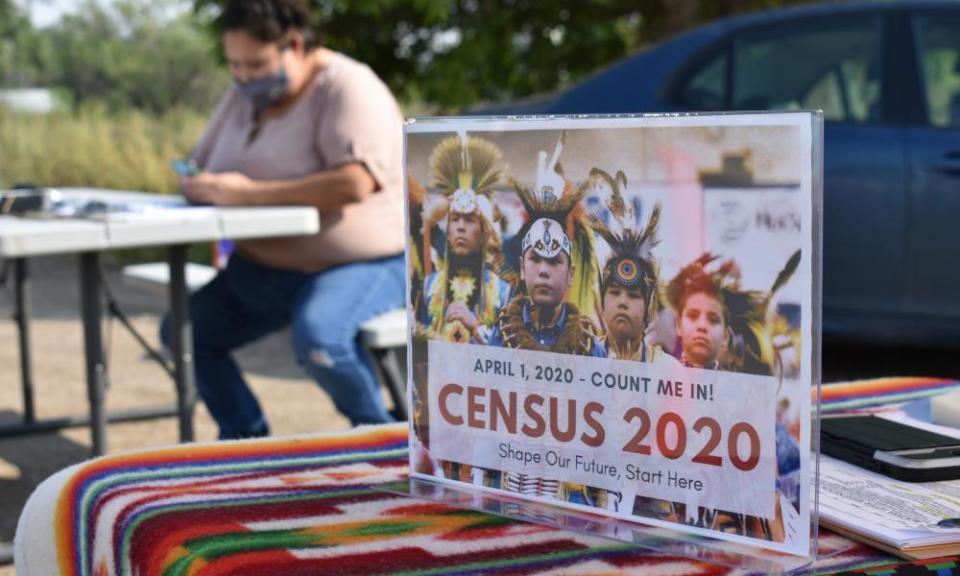Officials outside bureau made decision to speed US census, report finds

Officials outside of the US Census Bureau made the decision to speed up efforts to complete the 2020 census, a move likely to decrease the accuracy of the decennial survey, according to a report released on Monday.
The report from the commerce department’s office of inspector general (OIG), the agency’s official watchdog, offers some of the clearest evidence yet of how a decision to accelerate the census could lead to problems with the quality of the data it produces. Inaccurate data would be deeply consequential because it is used to draw electoral districts, allocate $1.5tn in federal funds, and make decisions about where to build schools, roads and other necessities.
The constitutionally mandated survey is conducted just once every 10 years. The bureau, part of the commerce department, is planning to end counting on 30 September and produce processed data used to determine how many seats each state gets in the US House by 31 December. That timeline could be complicated by a slew of federal court cases seeking to force the bureau to extend counting.
Monday’s report notes that the period for the bureau to follow up with people who failed to respond to the census on their own was shortened from 80 days to 56. That shortened window gives the bureau much less time to respond to contingencies, such as natural disasters, or do recounts if it discovers errors. Bureau officials told investigators they were confident they could reach their goal of gathering data for 99% of housing units in every state, but they said they were unsure of what would happen if they were unable to meet that target.
The commerce department requested a four-month extension on the census in April, including an extra month for counting people, citing difficulties caused by the pandemic, but it reversed course in August and said it would try to complete counting by the end of September, its original timeline.
Internal emails released as part of ongoing litigation show career bureau employees opposing speeding up the timeline.
“It is ludicrous to think we can complete 100% of the nation’s data coverage earlier than 10/31 and any thinking person who would believe we can deliver apportionment by 12/31 has either a mental deficiency or political motivation,” Timothy Olson, a top bureau employee, wrote in a July email.
The OIG report does not offer insight into the decision, but it says it came from outside the Census Bureau, and potentially from the commerce department or White House. Census Bureau officials did tell the OIG, however, they believed the Trump administration’s effort to exclude undocumented immigrants from census data played a role in the decision to accelerate the survey.
“We found that when that schedule was subsequently accelerated in August 2020, the decision came from outside the Bureau and further increased the risks to the accuracy and completeness of the 2020 Census,” Peggy Gustafson, the agency’s Inspector General, wrote in the report.
Once counting is completed on 30 September, there still are severe risks the Bureau may not have enough time to correct any errors it finds in the data when it is processing it. Researchers typically discover errors in census data during processing after counting is complete. Under the current timeline, researchers may simply not have time to correct errors they find in the data, bureau officials said.
“It is particularly damning, and reassuring, that the Department of Commerce’s own inspector general was able to review the facts and shine light on the truth about the 2020 census,” said Arturo Vargas, CEO of the Naleo educational fund, which works closely on census issues.
This summer, bureau officials scrambled to put together talking points showing that rushing the count could lead to decreased confidence in census data, including the appearance it was politically manipulated, according to NPR.

